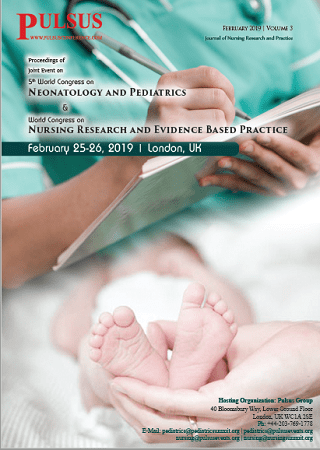Conference Information
About Conference
Pulsus Group invites participants from all over the globe to attend “Global Meeting on Nursing & Healthscience” scheduled during April 16-17, 2021at Zurich, Switzerland. This includes proficient keynote presentations, verbal speeches, productive poster presentations and exhibitions.
Global Nursing 2020 Conference provide a worldwide stage to worldwide systems administration and trading most recent developments in nursing and healthcare. Offering opportunity to go to the presentations conveyed by eminent experts from everywhere throughout the world. Participating in Nursing and Healthscience congress gives an approach to meet, cooperate with, and make contacts with different specialists in your claim to fame region. Most meetings will have creators, analysts, or clinicians who are perceived specialists in the field. Nursing conferences unites people who have an enthusiasm for various fields of nursing like psychiatric, cancer, cardiac, critical care, adult & women health, legal, pediatric and emergency nursing, midwifery, public health, healthcare and medicine from practice, research, administration, policy and education.
Who Should Attend?
• Nurse Practitioners
• Registered Nurses
• Nurses
• Nurse Associations
• Physicians
• Healthcare Professionals
• Health Care Researchers
• Doctors / Professors / Researchers and students from the field of nursing
• Pediatricians
• Surgeons
• Faculty of Nursing
Why to Attend???
It will provide exposure to the on-going researches in Nursing and Healthscience. It will also provide insight to the inventions and techniques. It is very beneficial for the student Nurses and fellowship owners because it provides knowledge in the field. It also gives opportunities to the companies to showcase their products and have face to face meetings with scientists.
The Nursing Conference is a platform for nursing students, faculty, deans, researchers, and leaders to collaborate on topics affecting Nursing research.
Attendees can:
- Take advantage of opportunities to learn about Nursing and health science from a variety of oral and poster presentations.
- Meet and network with nurses ranging from students to deans, faculty, and researchers.
- Take advantage of opportunities to collaborate with nurses from around the world.
- Attend prominent plenary sessions about relevant issues affecting Nursing Research
Benefits:
- Accepted abstracts will be published in Journal of Nursing Research and Practice provided with DOI number
- CPD certification with eminent signature
- Global networking: In transferring and exchanging Ideas
- A Unique Opportunity for Advertisers and Sponsors at this International event
conference opportunities
For Researchers and Faculty Members:
Speaker Presentations
Poster Display
Symposium hosting (4-5 member team)
Workshop organizing
For Universities, Associations & Societies:
Association Collaborating
Collaboration proposals
Academic Collaborating
Group Participation
For Students and Research Scholars:
Poster Competition (Winner will get Best Poster Award)
Young Researcher Forum (YRF Award to the best presenter)
Student Attendee
Group registrations
Speaker Presentations
Symposium hosting
Book Launch event
Networking opportunities
Audience participation
Exhibitor and Vendor booths
Sponsorships opportunities
Product launch
Workshop organizing
Scientific Collaborating
Marketing and Networking with clients
Market Analysis
The demand of Nursing staff in European countries and all over the world is rising day by day. Many are facing a lot of shortage in nurses to optimize the healthcare needs. As per the recent statistics, France has shortage of nurses with 700 nurses per 100,000 inhabitants. From survey data company, Jobfeed analyzed over 1.5 million vacancies for nurses in the near future. This shows that there is significant demand and growth in market in the field of nursing. In Switzerland, currently there is a shortage of 50,000 nurses and this would be increased 25% by 2025. There is also a need to increase number of Colleges and Universities in Switzerland. In Future, more senior citizens globally require Long term care. Europe may be facing 1 million shortages of nurses by 2020.
Switzerland spends 12.4% of its GDP on health, or US$7 919 per capita (OECD, 2017); 46% is spent on inpatient care, 29% on outpatient care and 12% on pharmaceuticals dispensed to outpatients. The share of inpatient care is much higher than the OECD average (33%), for example due to longer hospital stays compared to most other OECD countries, while the share of pharmaceuticals is lower (OECD average: 20%). The relative share of expenditure by type of health care services has remained stable over time (OECD, 2017). To date, reimbursement of basic health care services is uniformly regulated on a national level, but costs for equivalent health services vary significantly across cantons, as well as private or complementary health insurance coverage. To increase transparency and comparability of Swiss health care, Swiss Diagnosis Related Groups (DRGs) became effective on 1 January 2012 on a national level. According to the recent revision of the Swiss Health Insurance Act, this new classification system aims at standardizing reimbursement of health care services in acute care settings.


